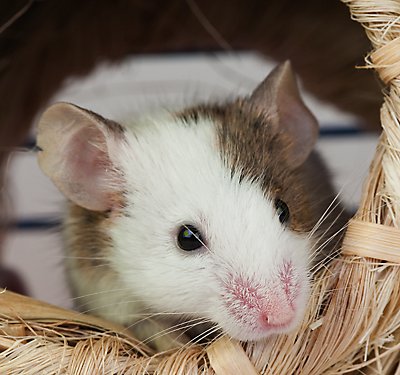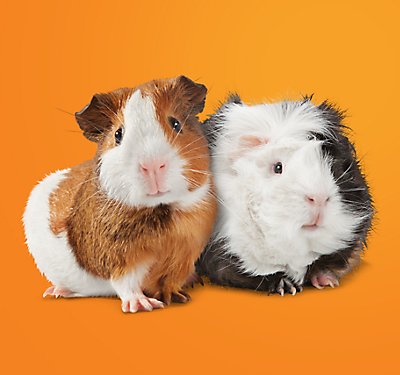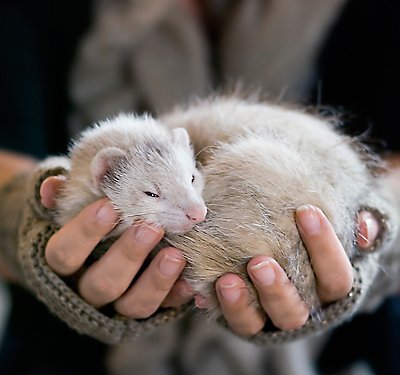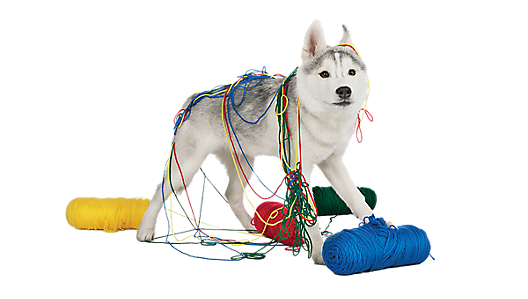
 top
top
SMALLPET / health & care
Fancy Rat Care Guide: Essential Tips for Your Pet Rat
Everything you need to know to give your fancy rat a happy life
Overview
Fancy rats are popular pets known for their intelligence and playful nature. This guide provides essential tips on fancy rat care, ensuring your pet rat leads a happy and healthy life.
6 things to know about your fancy rat
- Experience level: Fancy rats are beginner-friendly, making them perfect for new pet owners.
- Size and lifespan: Fancy rats typically grow to 7 to 10 inches (18-25 cm) long with a 6- to 8-inch (15-20 cm) tail and have a lifespan of about 2 years.
- Daytime activity: Fancy rats are diurnal, meaning they are most active during the day.
- Training potential: Highly intelligent, fancy rats can learn to respond to their name.
- Sensory adaptation: Despite poor eyesight, they use motion detection to navigate their environment.
- Did You Know?: They have poor eyesight and sway while standing still to detect motion
How do I set up a fancy rat habitat?
Fancy rats are social and can be housed in same sex/gender pairs. Their home should include a hiding house. Hiding houses should be easily cleaned (wooden houses are not recommended). Edible homes give the additional benefit of encouraging normal chewing behavior.
Fancy rat habitat size and location
- House your pet rat in a habitat that’s at least 16 x 28 x 30 inches with multiple levels.
- Place the habitat out of direct sunlight in a low-humidity area that’s between 65 and 75 degrees Fahrenheit (18 to 24 Celsius).
Fancy rat bedding
- Line the habitat with at least 1 or 2 inches of paper bedding. Spot-clean the bedding frequently and change it monthly.
- Clean hide-houses regularly.
Creating an engaging and safe habitat for your fancy rat
A stimulating environment is essential for the well-being of fancy rats. Include various toys, tunnels, and climbing structures in their habitat to encourage exploration and exercise. Safe materials for burrowing and nesting, like shredded paper or cloth, can also provide comfort and entertainment. Ensure that your fancy rat’s habitat is free from hazards like small objects they could ingest and protect them from potential dangers like open water sources. Your fancy rat’s habitat should be located somewhere that other household pets can’t get access to.
Shop fancy rat cages Shop bedding Shop accessoriesWhat do fancy rats eat?
Fancy rats enjoy a mixed menu of pellets, vegetables, and fruit.
- Pellets should make up 75% of their diet; keep the bowl three-quarters full and refresh it daily.
- Feed rats vegetables such as sweet potato and bell peppers every other day; and berries such as strawberries and raspberries once a week.
- Rats should have access to fresh, clean water at all times.
How can I keep my fancy rat healthy?
Fancy rats can be prone to certain health issues, with respiratory infections being among the most common. Regular cleaning of their habitat, using dust-free bedding and ensuring proper ventilation can help prevent these. Tumors and skin conditions are also concerns; a diet rich in fruits and vegetables, along with avoiding obesity, can reduce these risks. Regular health checks by a veterinarian are crucial for early detection and treatment of any health issues.
Try not to handle fancy rats for 3 to 4 days, while they adjust to their new home, in order to minimize their stress levels. Moving to an unfamiliar environment can be a challenge for any animal! Even after they are settled in, rats can get sick. Notice any of the following signs? Contact a veterinarian or a PetSmart store associate.
- Cloudy, sunken or swollen eyes
- New growths or lumps
- Overgrown front teeth
- Bare patches in fur
- Diarrhea or discolored droppings
- Lethargy
- Weight loss; not eating or drinking normally
- Sneezing; discharge from the eyes, nose or mouth
Pet safety Tips
- Thoroughly wash your hands before contact with your rat.
- Use caution when handling rats, and remember they may bite or scratch, especially when stressed.
- Never lift your rat by the tail.
- Supervise children around pets.
- Handle them close to the ground and your body
All animals can carry viral, bacterial, fungal and parasitic diseases that are contagious to humans. Thoroughly wash your hands with warm, soapy water after contact with any pet, its habitat, or aquarium water. Adults should assist children with handwashing. Always consult with your physician if you develop any symptoms of illness after handling your fancy rat.
VET ASSURED™
Pets purchased at PetSmart are part of our exclusive Vet Assured™ program, designed by PetSmart veterinarians to help improve the health and well-being of our pets.
Our vendors meet a high standard in caring for pets and screening them for common illnesses.
PETSMART PROMISE
If your pet becomes ill or if you’re not satisfied for any reason during the initial 14-day period, PetSmart will gladly replace the pet or refund the purchase price.
Fancy Rat Care: FAQs
What are the best enrichment activities for fancy rats?
Fancy rats thrive on mental stimulation. Enrichment activities can include puzzle feeders, mazes and foraging toys. You can also provide safe items for them to gnaw on, like untreated wood or cardboard. Interactive playtime with their human family, such as teaching them simple tricks, also provides excellent mental exercise.
How do I introduce a new fancy rat to my existing rat?
Introducing a new fancy rat to an existing one should be done gradually. Start by housing them in separate but adjacent spaces where they can smell and hear each other. Swap bedding between the cages to familiarize them with each other's scent. Gradual, supervised face-to-face interactions in a neutral space can follow, increasing in duration as they become more comfortable with each other.
Can fancy rats eat human food, and what should be avoided?
Fancy rats can eat some prepared human foods in moderation, but a majority of their diet should come from unprepared foods like vegetables and berries. However, avoid feeding them sugary, fatty or salty foods. Toxic foods for fancy rats include raw beans, green potatoes and sweet treats like candy or chocolate.
What are the signs of respiratory issues in fancy rats, and how can I prevent them?
Signs of respiratory issues in fancy rats include sneezing, wheezing, labored breathing and nasal discharge. To prevent these issues, maintain a clean living environment, avoid dusty bedding and ensure good ventilation. If you notice any respiratory symptoms, consult a veterinarian as these can indicate serious health problems.
How often should I clean my fancy rat's cage, and what's the best way to do it?
The bedding should be spot cleaned as needed and changed as directed by product packaging. Remove and discard old bedding and wash the cage with a pet-safe disinfectant. Rinse thoroughly and allow it to dry before adding fresh bedding. Regular cleaning prevents the buildup of microorganisms (or say bacteria viruses fungus), ammonia from urine, and keeps the environment healthy and odor-free.


























